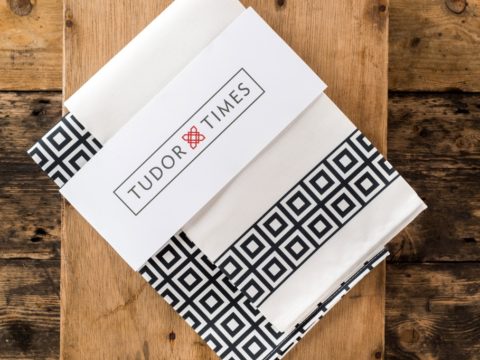Thomas More: Life Story
Chapter 1: Childhood
Thomas More was born in the reign of King Edward IV, in the city of London. Both sides of his family had members in the more influential guilds and his father, John More, was a lawyer, who later rose to be a judge. Although More’s parents probably had six children, it is likely that only four survived to adulthood. More’s mother died when he was a child and his father had three subsequent wives.
More’s childhood was spent in the family home in Milk Street, and his later writings suggest he had a happy and comfortable childhood, although he hinted that even the best step-mother was not the same as a parent, and there were various family quarrels between the second wife of John More and his daughter, Elizabeth, and her husband.
There was a nurse in the household, Mother Maud, whom More later remembered fondly. She told him stories from Aesop’s fables - a book he turned to later, both to educate his own children and as an example of timeless wisdom.
At the age of about seven, More began formal schooling at St Anthony’s in Threadneedle Street, considered to be one of the best of London’s grammar schools, attached to the hospital of the same name and the Church of St Benet Fink. The days were long – stretching from six in the morning to six in the evening - with a couple of breaks of perhaps an hour each at mid-morning and for dinner.
The curriculum of the grammar schools, which had been constant for hundreds of years, was originally geared towards training boys (girls were not educated outside the home) for careers in the Church and public office. Throughout the Middle Ages, the vast majority of offices were held by ‘clerics’, although they were not necessarily ordained priests. By More’s youth, there was a growing number of secular lawyers, who specialised in civil, rather than canon, law.
But whatever the long term career plan, fluency in understanding, reading, writing, declaiming, debating and arguing publicly, in both English and Latin, was at the heart of the curriculum. The other main branch of education considered important was music – both singing and instrumental. Whilst More excelled in argument, rhetoric and debate, and was held up as an exemplar of these skills all his life, he was not so accomplished in the musical aspects of his education, being no more than competent with a musical instrument and with a poor singing voice.
When More was around 12 years old his father secured a place for him in the household of John Morton, Archbishop of Canterbury, and Lord Chancellor of England. Morton had served Edward IV but had transferred his allegiance to Henry, Earl of Richmond, when Richard III took the throne. After Henry’s accession he became the King’s right hand man. John More had an affiliation with Morton, although the origins of the relationship are unknown, which allowed him to place his son in a place which, if Thomas took advantage of the opportunity, might lead to a glittering career.
The Archbishop was based in Lambeth Palace, opposite the Palace of Westminster, which was the King’s chief residence. His role was as one of the ‘children of the household offices’. Along with his fellow pages he would have slept communally and waited on the Archbishop’s household and guests in the Great Hall.
Amongst his fellow servitors were sons of gentlemen and nobleman, as it was customary for even high-ranking children to learn to serve in the houses of other families of the same or higher rank. Tudor society was extremely hierarchical, but it was believed that if you did not know how to serve, you could not effectively command service from others. More was thus mixing with many of the men who would later hold important roles in government.
Although Thomas’s role was as a page, waiting at table, offering bowls for hand-washing, clearing tables and ensuring that guests beds were properly made up, he continued his lessons, both in grammar and rhetoric, but now with the addition of the social skills related to etiquette and to managing the complexities of precedence and hierarchy. Personal deportment was also important - there were books of manners which enjoined the reader not to scratch, to spit, to cough, or to dabble their fingers too deeply into the communal dishes.
Whilst later accounts of More, designed to emphasise his qualifications for sainthood, suggest that Morton took an active interest in the boy, praising his talents and prophesying that he would go far, there is no contemporary evidence for this. Nevertheless given that the purpose of training young men and boys in the household was to find suitable candidates for advancement, it is not inherently unlikely.
During this period, Thomas’ father continued his career, and like many other successful Londoners, then and now, began to invest in land, acquiring or possibly expanding an estate in North Mymms in Hertfordshire.



